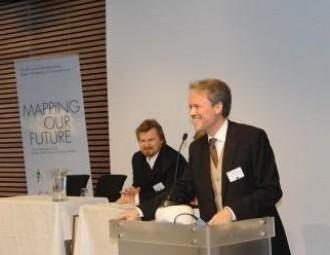Uladzimir Makei: Return of Belarusan diplomats to Sweden depends on several factors

This past April, the Belarusan foreign ministry agreed to grant accreditation to Sweden’s charge d’affaires months after a diplomatic row that led to the closure of the Swedish embassy in Minsk.
The return of Belarusan diplomats to Sweden depends on several factors, Belarusan Foreign Minister Uladzimir Makei told BelaPAN reporters on Thursday.
“This issue should be viewed within a context,” Mr. Makei said. “The system of the foreign ministry is being optimized at the moment. On the other hand, we’ll take the state of relations [with Europe] in general and with the specific country [Sweden] in particular into account.”
"The Belarusan side proceeds from the fact that the activity of the Swedish diplomat in Belarus will be implemented in full compliance with the provisions of the 1961 Vienna Convention on Diplomatic Relations and will be aimed at fulfilling the significant potential of two-way economic cooperation, developing humanitarian, people-to-people contacts and cooperation in the areas of environment and technical aid," said Maria Vanshyna, deputy head of the ministry’s Information Office.
Let us recall that the Swedish embassy in Minsk and the Belarusan embassy in Stockholm were closed in August 2012 amid a diplomatic row that followed the expulsion of Swedish Ambassador Stefan Eriksson.
Mr. Eriksson was expelled from Belarus a few weeks after a July 4, 2012 incident in which two representatives of Sweden`s ad agency Studio Total illegally flew a small plane from Lithuania to Belarus and dropped hundreds of teddy bears containing pro-human rights messages on the Belarusan territory.
Aliaksandr Lukashenka later denied a link between the expulsion of the ambassador and the toy drop.
The Belarusan foreign ministry announced on August 3 that the Belarusan authorities had denied an accreditation extension to Mr. Eriksson.
"He has worked in Belarus for about seven years, which is a long period," explained Andrei Savinykh, spokesman for the Belarusan foreign ministry. "However, all his activities were aimed at destroying Belarusan-Swedish relations, not at strengthening them."
-
03.01
-
07.10
-
22.09
-
17.08
-
12.08
-
30.09








































